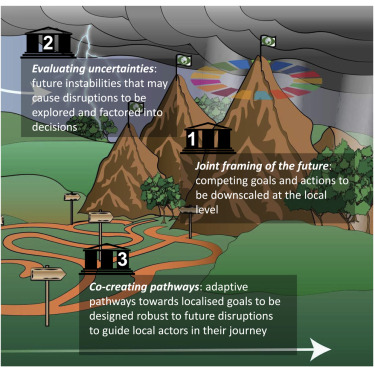Educational programs play a crucial role in fostering awareness of environmental sustainability, empowering individuals with knowledge, skills, and values to understand and address environmental challenges. Here are several types of educational programs that contribute to raising awareness of environmental sustainability:
1. Environmental Education in Schools
- Curriculum Integration: Integrate environmental education into school curricula across subject areas, incorporating topics such as climate change, biodiversity, conservation, and sustainable development into science, social studies, and geography lessons.
- Outdoor Learning: Promote outdoor learning experiences, nature-based activities, and environmental field trips that allow students to connect with nature, explore local ecosystems, and develop a sense of environmental stewardship.
2. Environmental Clubs and Extracurricular Activities
- Student-Led Initiatives: Support student-led environmental clubs, green teams, and sustainability initiatives that engage students in hands-on projects, eco-friendly initiatives, and advocacy campaigns to promote environmental awareness and action.
- Community Service: Encourage participation in community service projects, environmental clean-ups, and habitat restoration activities that foster a sense of civic responsibility and environmental stewardship among students.
3. Environmental Outreach and Workshops
- Guest Speakers and Presentations: Organize guest lectures, presentations, and workshops by environmental experts, scientists, and activists to share insights, research findings, and real-world examples of environmental challenges and solutions.
- Environmental Awareness Campaigns: Launch environmental awareness campaigns, film screenings, and panel discussions on campus to raise awareness of pressing environmental issues, inspire behavior change, and mobilize collective action.
4. Environmental Literacy Programs
- Environmental Literacy Standards: Develop and implement environmental literacy standards and assessments that define essential knowledge, skills, and dispositions related to environmental sustainability and promote interdisciplinary learning across grade levels.
- Professional Development: Provide professional development opportunities for educators to enhance their knowledge of environmental topics, pedagogical strategies, and resources for teaching environmental education effectively.
5. Environmental Justice and Equity Initiatives
- Diverse Perspectives: Incorporate discussions of environmental justice, equity, and intersectionality into educational programs to explore the disproportionate impacts of environmental hazards on marginalized communities and promote social and environmental justice.
- Community Partnerships: Foster partnerships with community-based organizations, environmental justice groups, and Indigenous communities to co-create culturally relevant and inclusive educational materials and programs that address local environmental concerns.
6. Sustainability-focused Higher Education Programs
- Sustainability Degrees and Certificates: Offer interdisciplinary degree programs, minors, and certificates in sustainability studies, environmental science, and sustainability management at colleges and universities to prepare students for careers in environmental sustainability.
- Experiential Learning: Provide hands-on learning opportunities, internships, and research experiences that allow students to apply classroom knowledge to real-world sustainability challenges and gain practical skills for creating positive environmental change.
7. Online and Digital Learning Platforms
- E-Learning Modules: Develop interactive e-learning modules, online courses, and digital resources on environmental topics that can be accessed remotely by students, educators, and lifelong learners to deepen their understanding of environmental sustainability.
- Virtual Field Trips: Offer virtual field trips, 360-degree tours, and multimedia experiences that allow participants to explore diverse ecosystems, conservation sites, and environmental landmarks from anywhere in the world.
Conclusion
Educational programs are essential for fostering awareness of environmental sustainability, empowering individuals with the knowledge, skills, and motivation to address environmental challenges and promote positive change. By integrating environmental education into schools, supporting student-led initiatives, organizing environmental outreach and workshops, promoting environmental literacy, advancing environmental justice and equity, offering sustainability-focused higher education programs, and leveraging online and digital learning platforms, educational institutions and organizations can play a key role in building a more sustainable and resilient future for all. Through collaborative efforts and ongoing commitment to environmental education, we can inspire a new generation of environmental leaders and changemakers who are equipped to tackle the complex environmental issues facing our planet.



